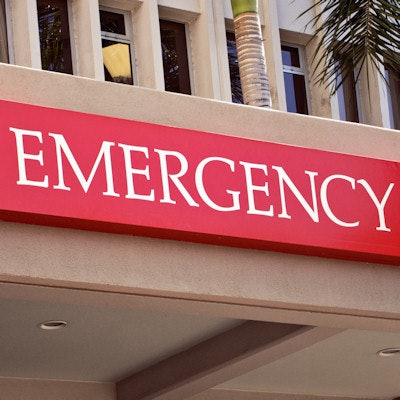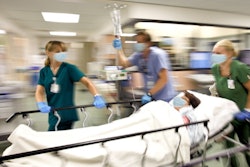
The U.K. Royal College of Radiologists (RCR) has responded to a new report that found many accident and emergency (A&E) patients with potentially deadly bowel obstructions experienced delayed diagnoses because of issues accessing CT scanners.
The National Confidential Enquiry into Patient Outcome and Death (NCEPOD) released a report on 9 January that showed better management pathways and access to CT scans are vital for patients presenting to A&E with acute bowel obstructions. Nearly 800,000 patients present to emergency departments each year with abdominal symptoms that could be life-threatening bowel obstructions, the RCR noted.
The report stated that 61% of patients with potentially deadly bowel obstructions experienced a delay in diagnosis due to imaging delays. Other findings included the following:
- Roughly 25% of emergency patients were not given a CT scan with an intravenous contrast agent.
- 19% of hospitals needed more CT scanners for A&E.
- 9% of patients with an ordered CT scan with contrast experienced a delay because of problems accessing CT scanners.
In a statement, Dr. Caroline Rubin, vice president for clinical radiology at the RCR, noted that the association welcomes the review. She stressed the need for more diagnostic capacity at the National Health Service.
"We need more scanners and more hospital-based radiologists to interpret complex abdominal scans, but the U.K. is currently struggling with one of the lowest allocations of CT scanners in the developed world and a diagnostic radiologist workforce that is 30% understaffed," she said.



















